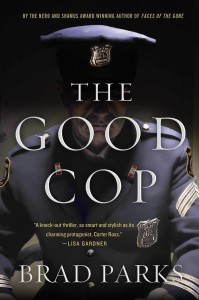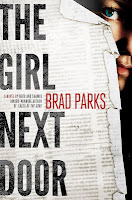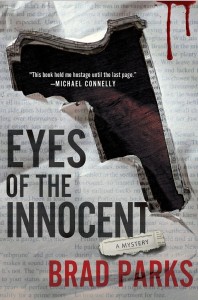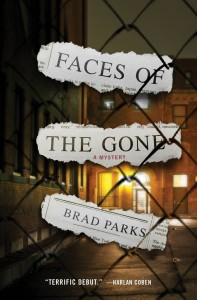 by Brad Parks, award-winning mystery writer
by Brad Parks, award-winning mystery writer
– Note from Jodie: I sold my house (Yay!) and am busy planning my cross-country move, editing a great new thriller for our own Joe Moore and his co-author, Lynn Sholes, and preparing a webinar to present at a cyber conference, so it was perfect timing when Brad Parks contacted me about guest posting on TKZ. – Take it away, Brad!
It was the great and revered mystery author P.D. James who once said, “Nothing that happens to a writer – however happy, however tragic – is ever wasted.”
I mention this because, one, it makes me sound well-read and erudite. And, two, because it is exactly the kind of soft-headed, touchy-feely, writer-as-artiste horse-apple I used to completely dismiss.
Of course things that happen to a writer are wasted. I mean, when I was a newspaper journalist I had to write whole stories about peoples’ reaction to the weather (“Boy, is it hot,” said Robert Smith of Manalapan. . . “I’m soooo cold!” said Sarah Jones of Weehawken). Believe me, those are dead brain cells I will not get back.
I think up until recently, I would have been ready to tell P.D. James to take her nothing-is-ever-wasted aphorism and stick it on a poster with kittens, because real writers don’t think of themselves as artists but, rather, as craftspeople. We use a well-honed set of tools – our sense of story, our intuition about human nature, a facility with language and prose, etc. – to craft thrilling tales of suspense. We don’t go in for all that navel-gazing, namby-pamby hogwa…
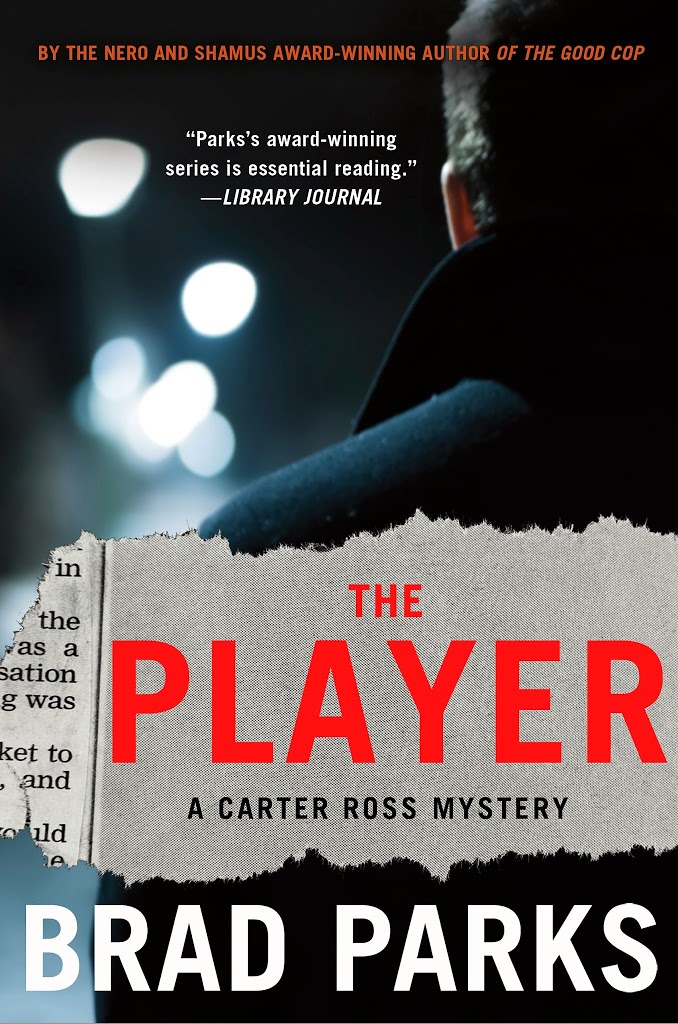 … And then along came this book. It’s called THE PLAYER, the fifth in my series featuring sometimes-dashing investigative reporter Carter Ross.
… And then along came this book. It’s called THE PLAYER, the fifth in my series featuring sometimes-dashing investigative reporter Carter Ross.
I was throwing a few notes together for various talks I’ll be giving at bookstores and libraries in the coming months and I remembered that, back when I started writing it, I thought of it as a book that dealt with the subject of brownfield redevelopment – that is, the cleaning of contaminated sites to make them suitable for new construction.
(Mind you, I no longer call it a book about brownfield redevelopment, because I’d actually like to sell a few of them. When you say “brownfield redevelopment,” peoples’ eyes get glassy. I now call it a book about toxic waste and the mob).
Anyhow, just for kicks, I went back and looked at some of the clips I had written about this subject back when I was a reporter. I tripped across this one story from 2007. It was about an abandoned landfill in Edison, New Jersey that was being eroded away by the Raritan River. The result was that every time the river rose – every rainstorm, every high tide – fifty-year-old trash was being swept into the current.
It was unhealthy, unsanitary, and a major eyesore. And yet because the original owner of the landfill was no longer around, there was no money to clean it up. Basically, the only hope for this dreadful little patch of earth was if a developer came along and decided to build a golf course there – or an office park, or whatever.
When done well, this is actually a great win-win. The contamination gets cleaned up. The developer gets some free land. It’s all good. But of course in the name of journalistic balance you always have to find someone to sound a note of alarm and remind readers that something that sounds too good to be true sometimes is. So I interviewed this environmentalist named Bill Wolfe. Here, I quote from what I wrote:
Wolfe said old landfills have been known to leach benzene, TPC, TPE, arsenic, lead, cadmium, chromium – a laundry list of killer chemicals. He calls redevelopment schemes “madness.”
“What should have been a public enterprise – cleaning up old landfills – has become a private, for-profit, economically driven enterprise,” Wolfe said. “It really is asking for a disaster.”
When I re-read that not long ago, I was agog. It was the thesis of THE PLAYER, stated in two succinct paragraphs. And I had completely forgotten that I ever wrote it. It was just fifty-six words buried near the bottom of a 1,800-word story. Since it published, I have written hundreds of other articles, to say nothing of a pile of full-length novels. We’re talking about something that was roughly a million words in my rearview mirror. I had no shot of remembering it.
But it was obviously rattling around in my head somewhere. And it managed to leak out onto the page and form a novel. Apparently P.D. James was onto something.
(Oh, incidentally, I did look up Bill Wolfe and sent him a copy of THE PLAYER. I figured it was the least I could do).
Now, maybe for some of you who are more enlightened on this subject, this connection between what you do and what you write isn’t news. For me, it’s been something of a revelation. It’s not that I’ve given up on my view that writers are craftspeople. It’s that I’m opening myself up to the idea that we’re artists, too.
I find myself living more consciously, being more aware of what I’m reading, who I’m talking to or what I’m seeing – because you never know when that article, that conversation or that experience will inform your future scribbling.
After all, nothing that happens to a writer is ever wasted.
Brad Parks is the only author in history to have won the Shamus, Nero and Lefty Awards. His latest book, THE PLAYER, received starred reviews from Kirkus and Library Journal. RT Book Reviews made it a Top Pick for March, saying, “Parks has quietly entered the top echelon of the mystery field.” Visit him at www.BradParksBooks.com.


